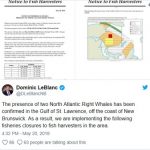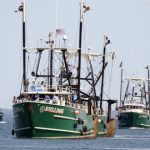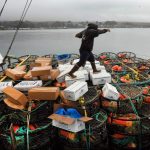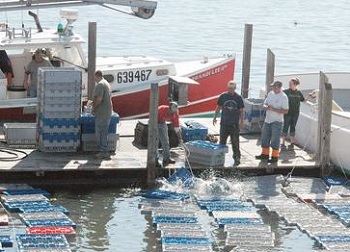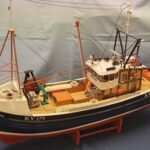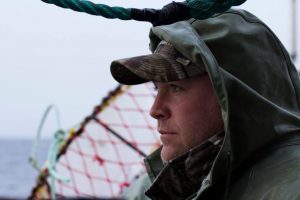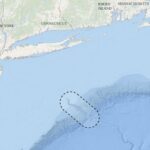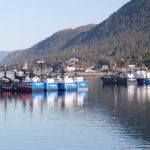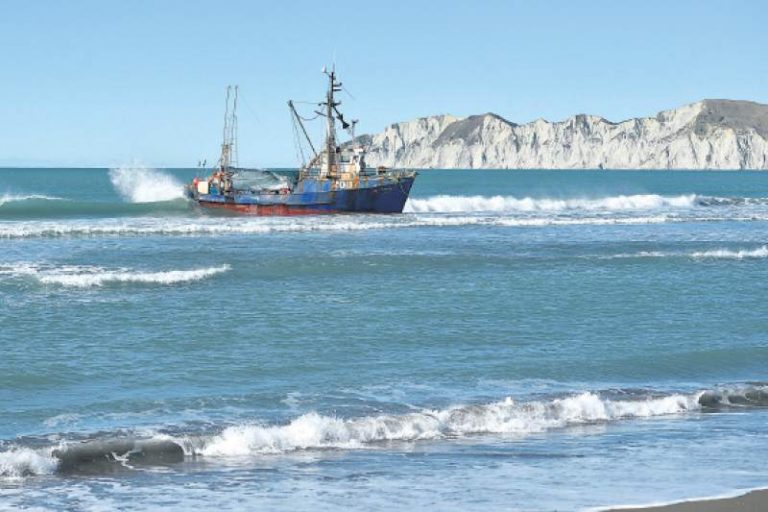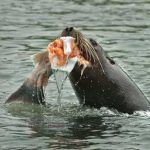Tag Archives: entanglements
War On Maine’s Lobstermen?
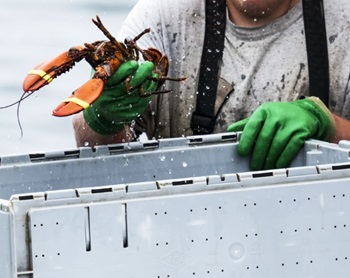 If you want an emblem of the “man’s man,” larger than life, daring and doing, self-reliant, depend-on-nature, a make-it-happen guy, who rises with the dawn, works hard, asks little, wants little, values independence, and will never fly a desk… that’s the Maine lobsterman or woodsman. Now, they are being scapegoated for wind farms – or some other cause – apparently killing Right whales. Go figure. A more cynical irony is hard to imagine. The wind subsidy crowd, sure they will make money off the taxpayer-funded “green wave” with gold at the end of a government-funded rainbow, has decided – in Washington and “activist cells” around America – to hit Maine’s lobstermen. Wrong. more, >>click to read<< by Robert B. Charles 07:17
If you want an emblem of the “man’s man,” larger than life, daring and doing, self-reliant, depend-on-nature, a make-it-happen guy, who rises with the dawn, works hard, asks little, wants little, values independence, and will never fly a desk… that’s the Maine lobsterman or woodsman. Now, they are being scapegoated for wind farms – or some other cause – apparently killing Right whales. Go figure. A more cynical irony is hard to imagine. The wind subsidy crowd, sure they will make money off the taxpayer-funded “green wave” with gold at the end of a government-funded rainbow, has decided – in Washington and “activist cells” around America – to hit Maine’s lobstermen. Wrong. more, >>click to read<< by Robert B. Charles 07:17
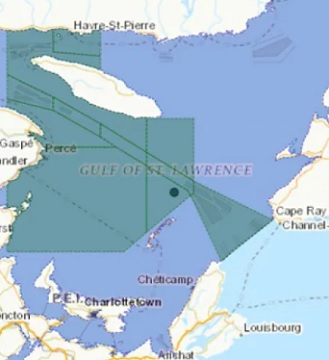
1st Right whale of season spotted in Gulf of St. Lawrence, triggers fishing closure
A surveillance aircraft spotted the whale in the Gulf, north of the Magdalen Islands, on Tuesday, the federal government announced Wednesday afternoon. There is now a 15-day fishing closure in specific fishing grids in the southern Gulf, north of the islands, according to a news release issued by Fisheries and Oceans Canada and the Canadian Coast Guard. In March, the Canadian government announced its fishery and vessel management measures for the 2022 season to protect the endangered whales from entanglements and ship strikes as they migrate into Canadian waters. >click to read< 18:22
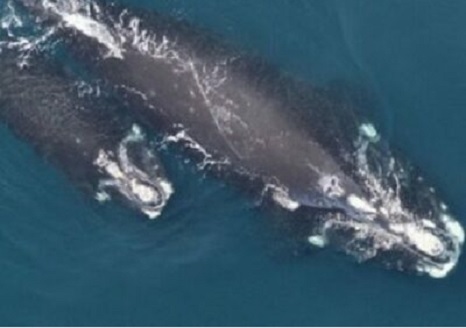
Whales Are Shrinking. Scientists Blame Commercial Fishing Gear
The findings, published today in the journal Current Biology, reveal that when fully grown, a North Atlantic right whale born today would be expected to be about one meter shorter than a whale born in 1980. The stunted growth of the whales coincides with an increasing rate of entanglements. A 2012 study from the New England Aquarium revealed,,, Researchers acknowledge that entanglements do not explain all of the reduced growth. Other factors might be climate change, collisions and noise from ships, and the shifting availability of tiny crustaceans called copepods, their primary food source. >click to read< 13:30
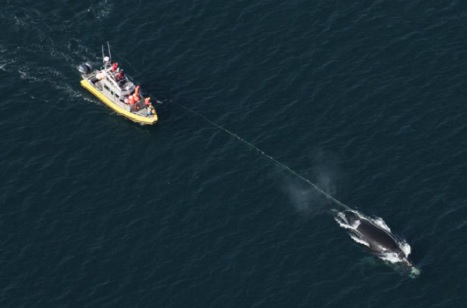
#ShowUsTheRope – Blamed for Right Whale Entanglements, Lobstermen say Show us the rope!
Snow Cone has triggered an outcry of frustration from fishermen, who say they’re being unfairly blamed for the decline of the critically endangered species. On Wednesday, March 10, a team from Provincetown’s Center for Coastal Studies freed Snow Cone from 300 feet of rope. The center described the team’s success on its Facebook page, and used a photo from an aerial survey that shows the whale and the telltale rope from 1,000 feet in the air. “So, I remember seeing this,” said Nick Muto. The Facebook post said the retrieved rope likely came from a fishery, but there was no close-up picture. “So my hashtag, #ShowUsTheRope, is me trying to lay it right on the Center for Coastal Studies,” >click to read< 20:06
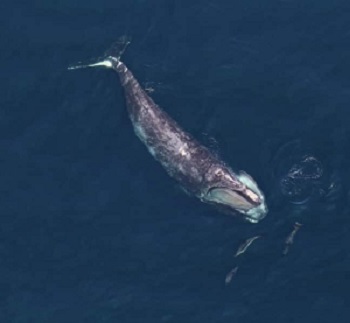
Enviro’s Lukewarm Reception For Canada Modifying Right Whale Protections
The Animal Welfare Institute has responded to the Canadian government’s recent decision to modify right whale protections, specifically concerning how they affect lobster and crab fishers. On the one hand, the institute welcomes and applauds the government commitment to “Whale Safe” ropeless fishing gear. However, it does not accept the promotion of weaker rope lines as a long-term solution for entanglement. >click to read< , with a link to the policy they oppose, unreasonably. 18:06
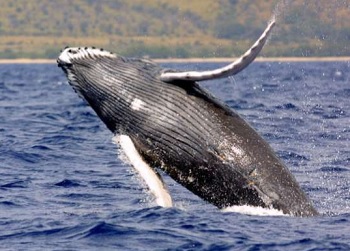
California crabbing rules a concern says North Coast fisherman
Local crab fisherman Mike Cunningham said he’s spoken with fishermen across the West Coast who take issue with the new rules. “We always look to avoid entanglements with whales,” Cunningham said. “The biggest problem (with the new rules) is that they are talking about closing massive areas to fishing. You could have an entanglement problem near Monterey, and the director (of Fish and Wildlife) could close the waters from Monterey up past Humboldt.” There are six fishing zones along the state’s coast. “The director now has the authority to do anything at any time,” Cunningham said. “Now, sometimes, it may just be a fleet advisory or warning, but it could go all the way to closing the entire coast to crab fishing.” The new rules stem from a lawsuit filed against the state by the Center for Biological Diversity, settled in 2019, >click to read< 19:48

Boasberg sets deadline for new North Atlantic Right Whale Protections no later than May 31, 2021
The Center for Biological Diversity, Conservation Law Foundation, Defenders of Wildlife and the Humane Society of the United States sued the federal government for violating the Endangered Species Act by allowing the lobster fishery to operate in a manner known to entangle right whales. U.S. District Court Judge James E. Boasberg also ordered a new ESA-mandated analysis of the American lobster fishery that takes into account the full scope of its harm to right whales. He stopped short of prohibiting lobster fishing with vertical buoy lines in a key right whale feeding area, which the groups had requested as an interim measure. >click to read< 07:15
Judge: Lobstering can proceed until new right whale protections are finalized in May – The right whale protection lawsuit winding its way through the federal courts for two years has often been called the “wild card” in the battle between environmental groups trying to save the critically endangered whale from extinction and Maine lobstermen trying to protect their way of life. >click to read< 17:24

Whale info way off, by Maine Lobsterman Leonard Young
Reading Bill McWeeny’s July 23 commentary bothered me a great deal. His statement that right whales have never been so close to extinction since they were hunted is untrue. I’ve been a lobsterman for almost 50 years, and we’ve been dealing with the whale issue for almost two decades. When we started this process, we were told there were 200 of these animals. Mr. McWeeny decided to omit the fact that we had modified our gear many years ago with sinking ground lines, breakaways in our end lines and more traps on end lines to decrease end lines. Since we did this, entanglements decreased considerably. These animals had increased to almost 500. Then they changed their feeding ground,, by Maine Lobsterman Leonard Young, Corea >click to read< 11:20
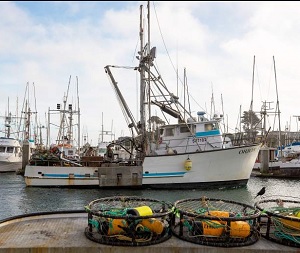
New rules for California Dungeness crab fleet
The California Department of Fish and Wildlife on Friday unveiled a batch of complex new rules designed to reduce the risk to endangered whales and sea turtles of becoming entangled in commercial Dungeness crab fishing gear. The draft regulations are set to be finalized before the next commercial season starts in November after a period of public review. Among the provisions are options to restrict fishing in certain depths, require crabbers to set only a share of the traps for which they’re permitted or limit intervention to any of six newly established geographic zones, rather than the larger Northern and Central California management districts that currently exist. >click to read< 09:14

Court Finds American Lobster Fishery Requires Incidental Take Statement for Impacts on North Atlantic Right Whale
As commercial fisheries across the United States continue to adjust operations in the face of new legal requirements, such as the shift from single-species to ecosystem-based management, one challenge in particular has dominated the courts: the Endangered Species Act (ESA). Recent court decisions have vacated commercial longline fishing permits in federal waters off the coast of California that could endanger the Pacific leatherback sea turtle and restored prohibitions on gillnet fishing gear in a known New England feeding ground for the endangered North Atlantic right whale. This trend continued on April 9, when a federal district court judge in Center for Biological Diversity,,,The American lobster fishery is managed cooperatively by the Atlantic States Marine Fisheries Commission and NMFS, >click to read< 14:45
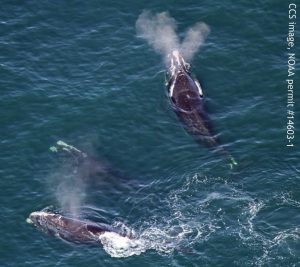
NOAA Team Reaches Consensus on Right Whale Survival Measures
“This is hard work. The Team members brought not only their expertise but also their passion for the people and communities they represent to the table. Everyone understands that there are real and difficult consequences to fishermen as a result of the choices made in this room,” said Sam Rauch, NOAA Fisheries deputy assistant administrator for regulatory programs.,,, The group will meet in Providence, Rhode Island for four days. At the end of the meeting, they hope to agree on a suite of measures that will reduce right whale serious injuries and deaths in fishing gear in U.S. waters from Maine to Florida to less than one whale per year, the level prescribed by the Marine Mammal Protection Act. >click to read<09:15
Fishing industry group says it’s looking for ways to prevent Atlantic right whale entanglements
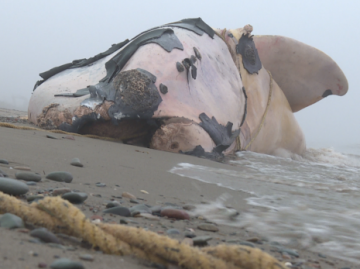 The fishing industry says it’s looking for a solution to help prevent North Atlantic right whales from enduring painful, and sometimes deadly, entanglements with fishing gear. The Maritime Fishermen’s Union says a longer snow crab fishing season and an unprecedented number of right whales in the Gulf of St. Lawrence created a “perfect storm” this year for a massive die-off.,,, “Our association is being proactive with this issue and there are some consultations that will be going forward with the Department of Fisheries and Oceans as soon as early November,” click here to read the story 15:24
The fishing industry says it’s looking for a solution to help prevent North Atlantic right whales from enduring painful, and sometimes deadly, entanglements with fishing gear. The Maritime Fishermen’s Union says a longer snow crab fishing season and an unprecedented number of right whales in the Gulf of St. Lawrence created a “perfect storm” this year for a massive die-off.,,, “Our association is being proactive with this issue and there are some consultations that will be going forward with the Department of Fisheries and Oceans as soon as early November,” click here to read the story 15:24


































